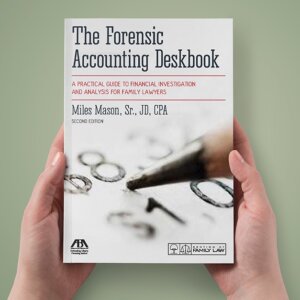Financial Advisor’s “Book of Business” Not a Marital Asset
Wife took the position that the husband’s “book of business,” his relationship with clients, represented an asset that was marital property.
Tennessee case summary on marital property definition and classification in divorce.
Melanie Miller Hollis v. Charles Myers Hollis, Jr.
The husband and wife in this Bradley County, Tennessee, were married in 1996, and the wife filed for divorce in 2018. The husband was a financial advisor for UBS, and a major client was the Church of God Benefits Board.
The wife took the position that the husband’s “book of business,” his relationship with clients, represented an asset that was marital property. The husband, on the other hand, pointed out that his employer did not allow him to take this information if he left the company. Therefore, he argued that it was not property, much less marital property.
The trial court’s order addressed many issues, including the “book of business.” Ultimately, the trial court held that it was not marital property. It was more in the nature of future income, the lower court held.
The wife appealed to the Tennessee Court of Appeals and raised various issues, including the lower court’s ruling as to the “book of business.” The appeals court addressed this issue first. It noted that issues of this type were within the lower court’s discretion, and the standard of review was therefore abuse of discretion.
The court then turned to the statutory definition of “marital property.” The wife argued that it fit this definition. The husband, on the other hand, argued that “book of business” was really just another name for his personal goodwill, which is not a marital asset.
After examining the evidence, the appeals court concluded that the lower court had not based its decision on any incorrect legal standard or an erroneous assessment of the evidence. Instead, it had a proper factual basis, and was therefore not an abuse of the court’s discretion. For these reasons, it affirmed the lower court’s ruling.
After addressing the wife’s other issues, the Court of Appeals affirmed the lower court’s ruling and remanded the case for collection of costs.
No. E2020–01123-COA-R3-CV (Tenn. Ct. App. June 29, 2022).
See original opinion for exact language. Legal citations omitted.
To learn more, see Property Division in Tennessee Divorce and view our video Is Tennessee a 50 50 divorce state?






